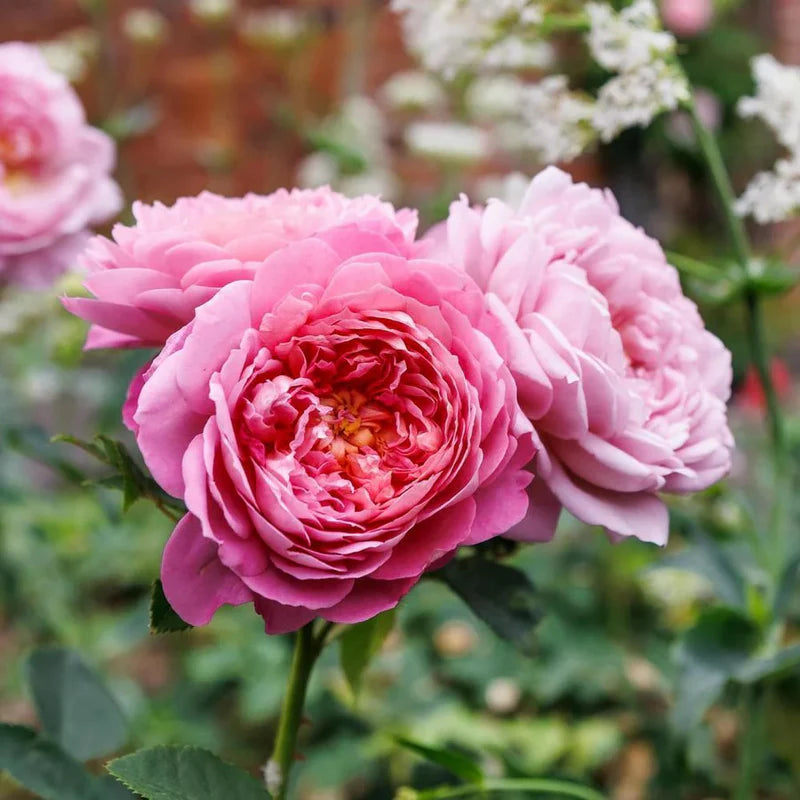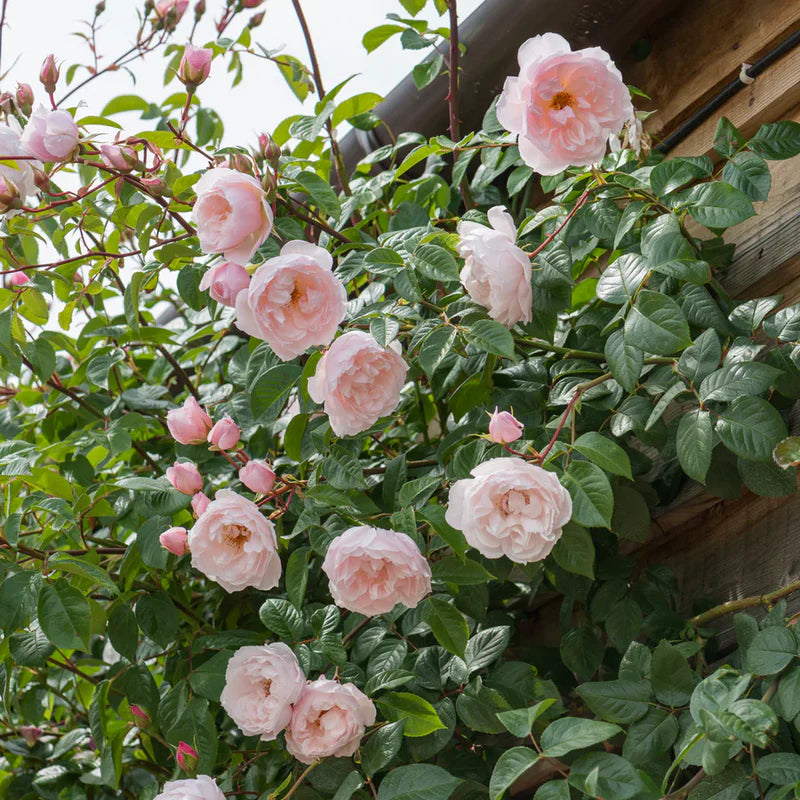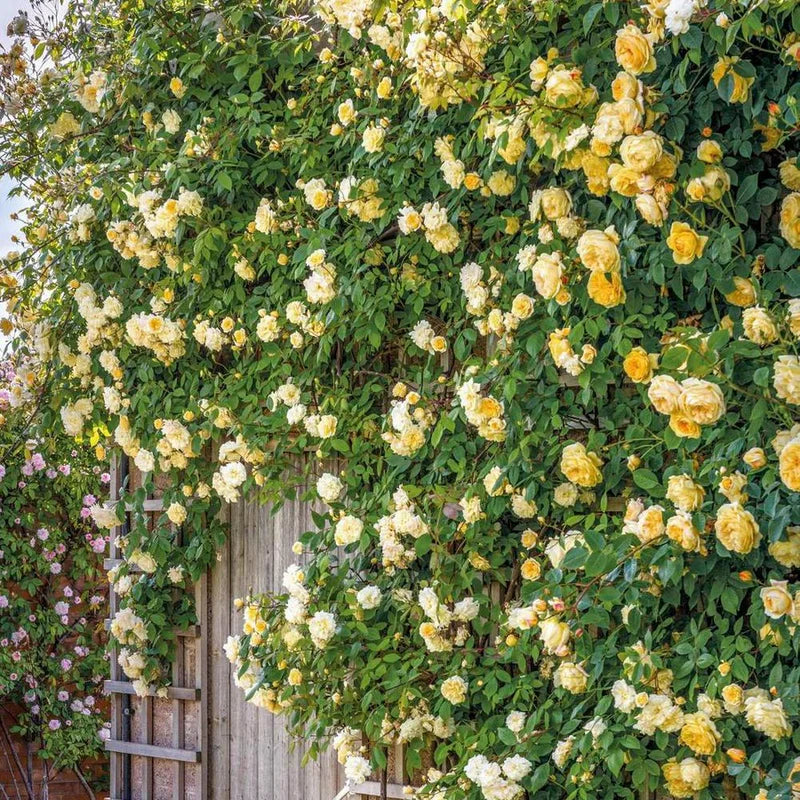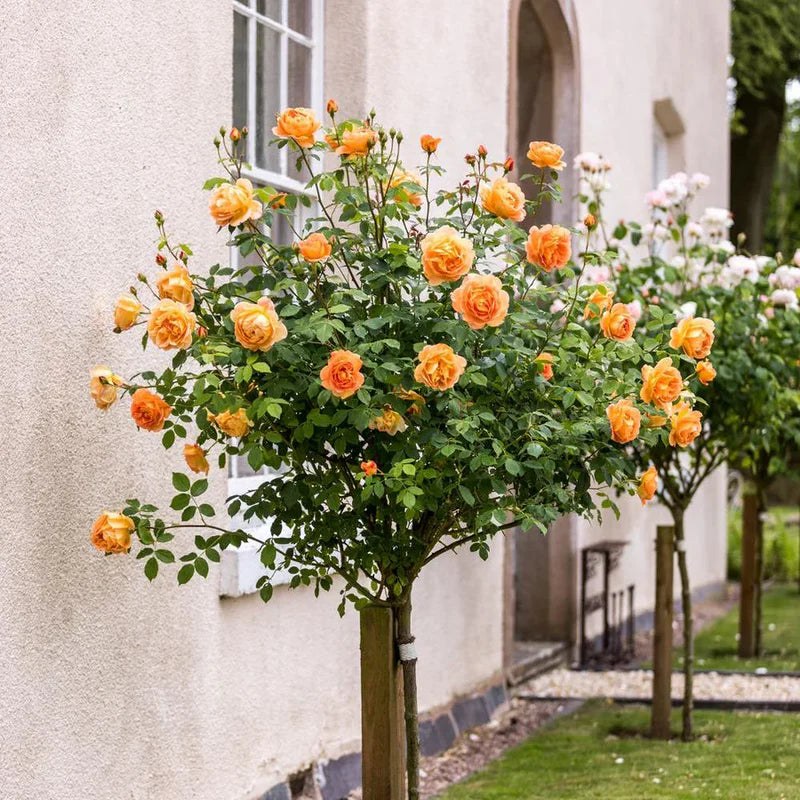Rose Care
Pruning Roses: A Guide for the Season Ahead
Pruning is one of the most rewarding jobs you can do for your roses. It brings shape and structure to the plant, refreshes it for the season ahead, and helps encourage a generous display of flowers.
Read more-
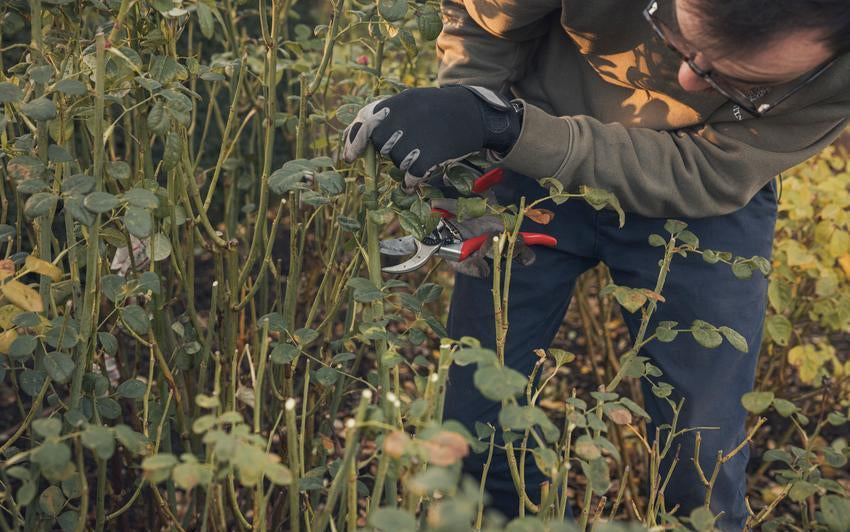 Pruning Roses: A Guide for the Season AheadPruning is one of the most rewarding jobs you can do for your roses. It brings shape and structure to the plant, refreshes it for the season ahead, and helps encourage a generous display of flowers.Read more
Pruning Roses: A Guide for the Season AheadPruning is one of the most rewarding jobs you can do for your roses. It brings shape and structure to the plant, refreshes it for the season ahead, and helps encourage a generous display of flowers.Read more -
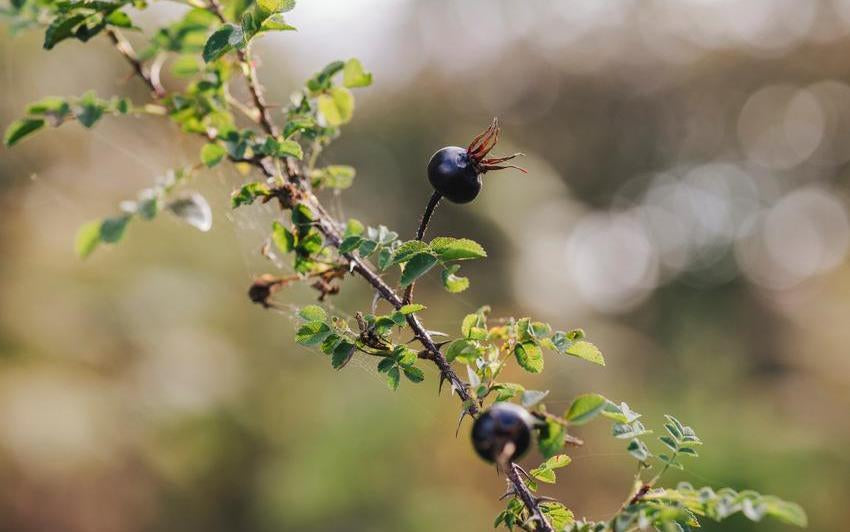 A Rose for Burns Night: Rosa spinosissima and the Soul of ScotlandSome roses feel made for sheltered borders and warm, soft summers. Rosa spinosissima feels different. It belongs to tougher places, where wind shapes the plants as much as the gardener ever could.Read more
A Rose for Burns Night: Rosa spinosissima and the Soul of ScotlandSome roses feel made for sheltered borders and warm, soft summers. Rosa spinosissima feels different. It belongs to tougher places, where wind shapes the plants as much as the gardener ever could.Read more -
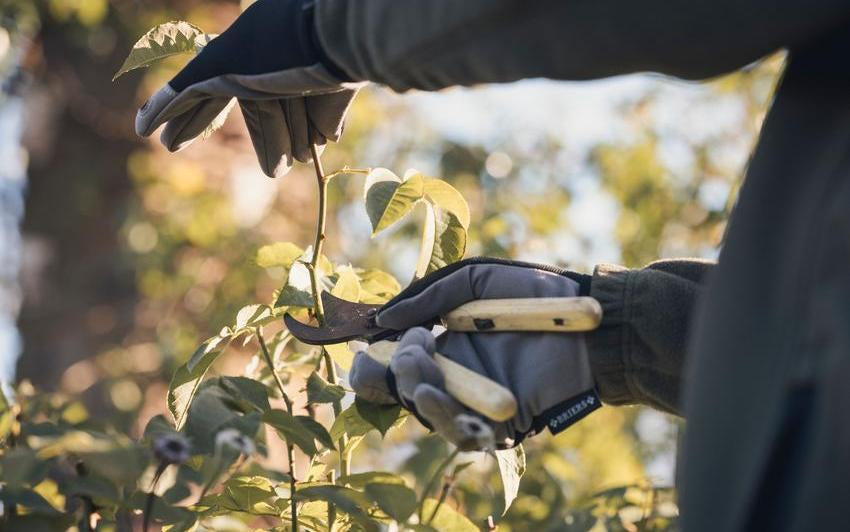 How to Prune English Roses in Pots and ContainersAn English Rose in a container is one of the garden’s greatest luxuries. Whether placed beside a front door, on a terrace, or nestled into a paved courtyard, a potted rose brings perfume and flower close at hand, not at a distance, but right where it can be enjoyed daily.Read more
How to Prune English Roses in Pots and ContainersAn English Rose in a container is one of the garden’s greatest luxuries. Whether placed beside a front door, on a terrace, or nestled into a paved courtyard, a potted rose brings perfume and flower close at hand, not at a distance, but right where it can be enjoyed daily.Read more -
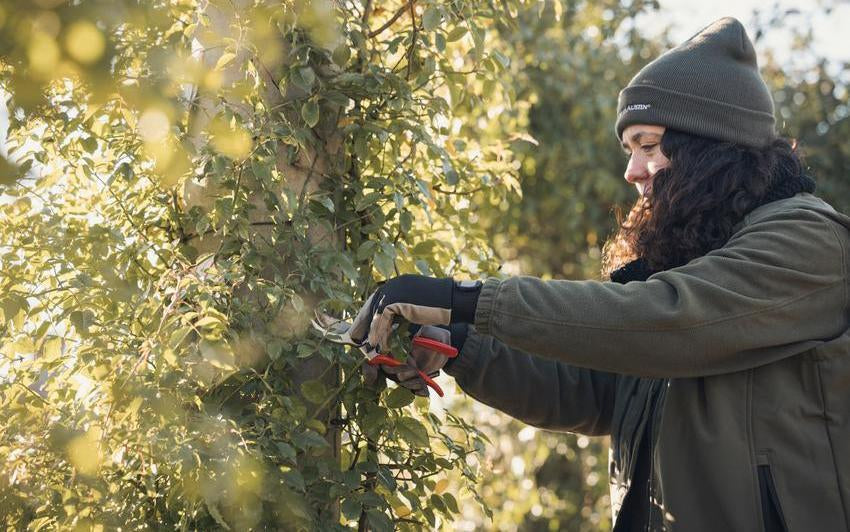 How to Prune Repeat Flowering Climbing and Rambling RosesClimbing and rambling roses are among the most rewarding roses to grow. Given a support and a little guidance, they quickly become generous plants, covering walls, arches and structures with leafy growth and repeat flowers across the season.Read more
How to Prune Repeat Flowering Climbing and Rambling RosesClimbing and rambling roses are among the most rewarding roses to grow. Given a support and a little guidance, they quickly become generous plants, covering walls, arches and structures with leafy growth and repeat flowers across the season.Read more -
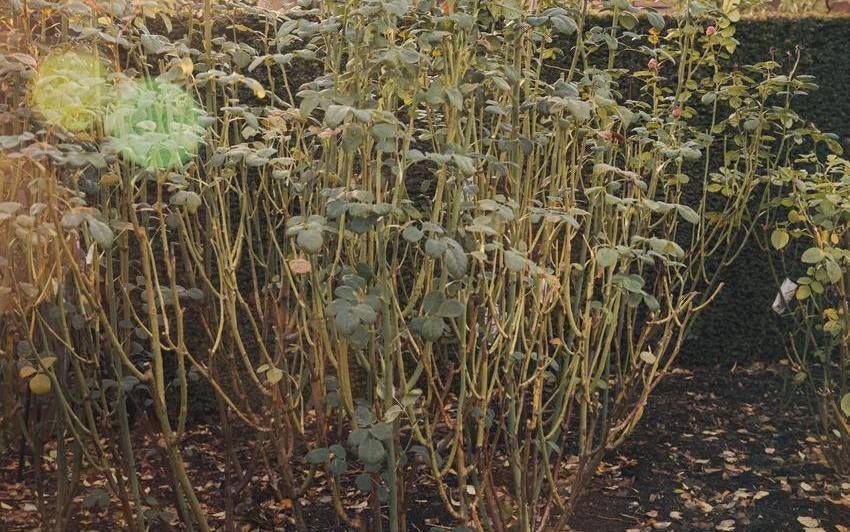 How to Prune Repeat Flowering Shrub RosesIn winter, the garden shows its bones. Beds are quieter, borders are pared back, and shrubs stand in their true shape. Roses too reveal themselves at this time of year, and although it may seem as though little is happening, the plant is already preparing for the season to come.Read more
How to Prune Repeat Flowering Shrub RosesIn winter, the garden shows its bones. Beds are quieter, borders are pared back, and shrubs stand in their true shape. Roses too reveal themselves at this time of year, and although it may seem as though little is happening, the plant is already preparing for the season to come.Read more -
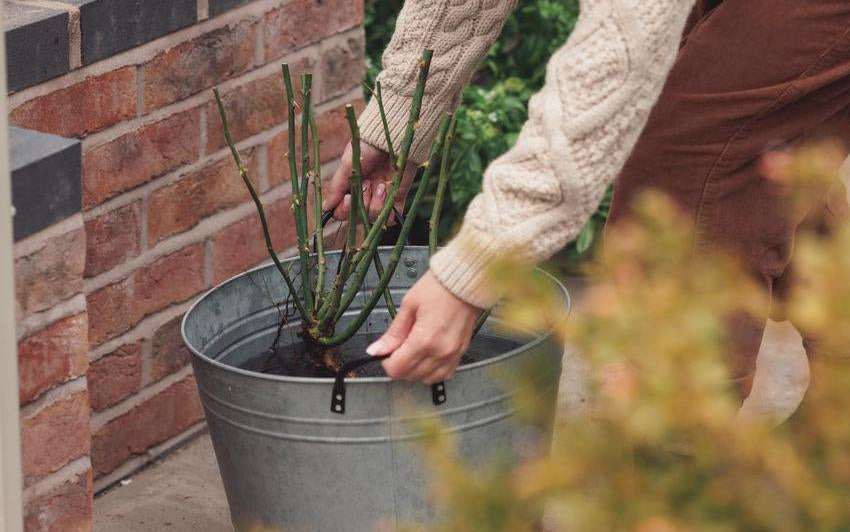 How to Keep English Roses at Their Best Until They Can Be PlantedGifting a rose is a thoughtful and much-loved gesture. Even in winter, when the garden rests and the days grow quieter, a rose carries the promise of colour and new life in the year ahead. Often, though, roses are bought well before they are given. If yours needs to be kept for a short while before it can be planted, caring for it is wonderfully simple. Roses are far more patient than they appear and will remain at their best with just a little attention.Read more
How to Keep English Roses at Their Best Until They Can Be PlantedGifting a rose is a thoughtful and much-loved gesture. Even in winter, when the garden rests and the days grow quieter, a rose carries the promise of colour and new life in the year ahead. Often, though, roses are bought well before they are given. If yours needs to be kept for a short while before it can be planted, caring for it is wonderfully simple. Roses are far more patient than they appear and will remain at their best with just a little attention.Read more -
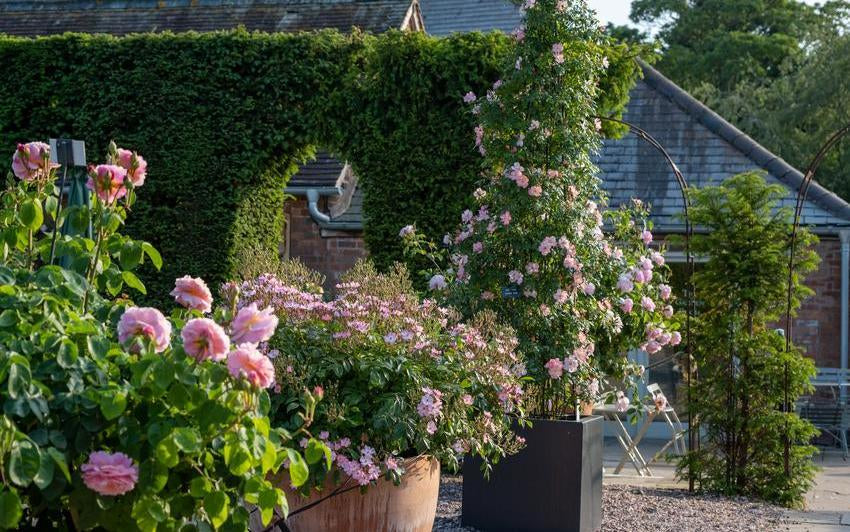 The Basics of Growing RosesRoses bring a quiet happiness to a garden. Their beauty feels effortless once they are settled, and even a new gardener can grow them with success. With sunlight, sound soil, and a little seasonal care, roses will flower generously and become dependable companions through the year.Read more
The Basics of Growing RosesRoses bring a quiet happiness to a garden. Their beauty feels effortless once they are settled, and even a new gardener can grow them with success. With sunlight, sound soil, and a little seasonal care, roses will flower generously and become dependable companions through the year.Read more -
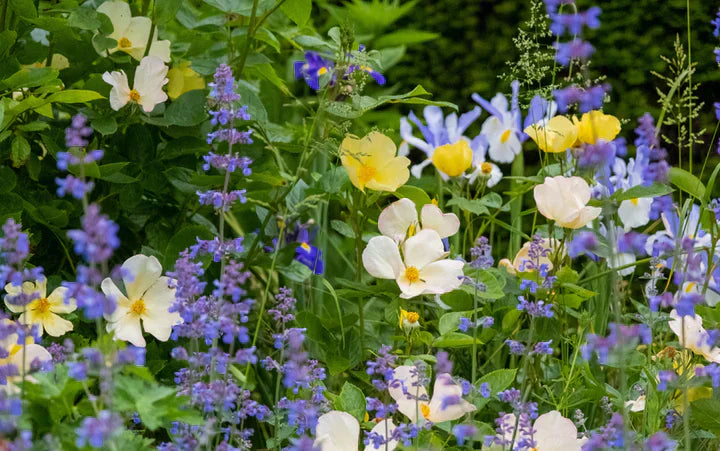 A Year With Roses: Seasonal Goals for Your GardenRoses guide the pace of the garden year. Their summer display is shaped by a series of small, thoughtful tasks that unfold long before the first bloom appears. Each season offers its own moment to step in and help your roses flourish.Read more
A Year With Roses: Seasonal Goals for Your GardenRoses guide the pace of the garden year. Their summer display is shaped by a series of small, thoughtful tasks that unfold long before the first bloom appears. Each season offers its own moment to step in and help your roses flourish.Read more -
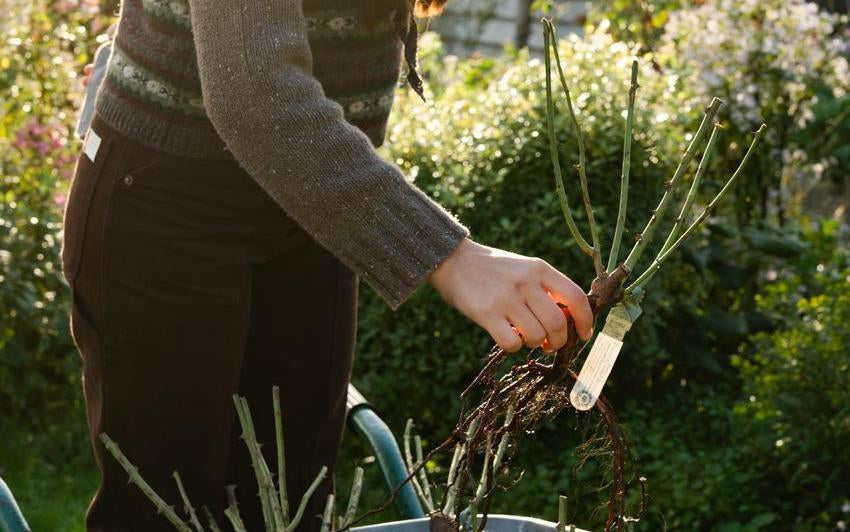 Why the Best Rose Gardens Begin in WinterWinter is often mistaken for an ending. Beds are bare, borders are quiet, and the garden appears to have paused. Yet for roses, winter is not an absence of growth but the moment when everything important begins. Beneath the soil and within each stem, the foundations of the coming year are already being laid.Read more
Why the Best Rose Gardens Begin in WinterWinter is often mistaken for an ending. Beds are bare, borders are quiet, and the garden appears to have paused. Yet for roses, winter is not an absence of growth but the moment when everything important begins. Beneath the soil and within each stem, the foundations of the coming year are already being laid.Read more -
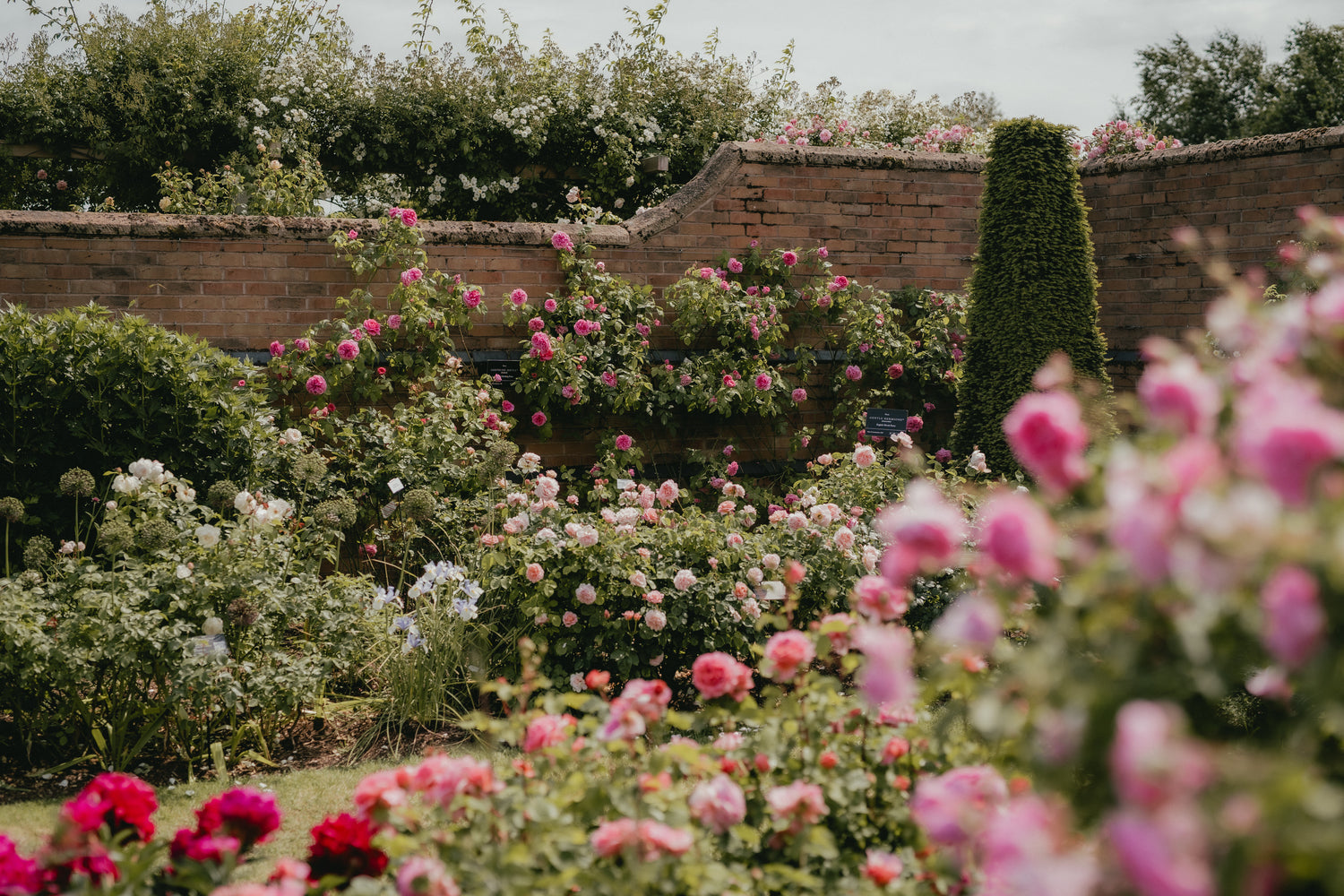 A Year in Bloom: Looking Back at 2025There are years when the garden feels especially alive and full of stories. In 2025, at David Austin®, we saw moments that reminded us why we spend our days among stems and buds. Beginnings that feel full of promise, flowers that arrive ahead of expectation, and new roses introduced on some of the most celebrated stages in gardening.Read more
A Year in Bloom: Looking Back at 2025There are years when the garden feels especially alive and full of stories. In 2025, at David Austin®, we saw moments that reminded us why we spend our days among stems and buds. Beginnings that feel full of promise, flowers that arrive ahead of expectation, and new roses introduced on some of the most celebrated stages in gardening.Read more -
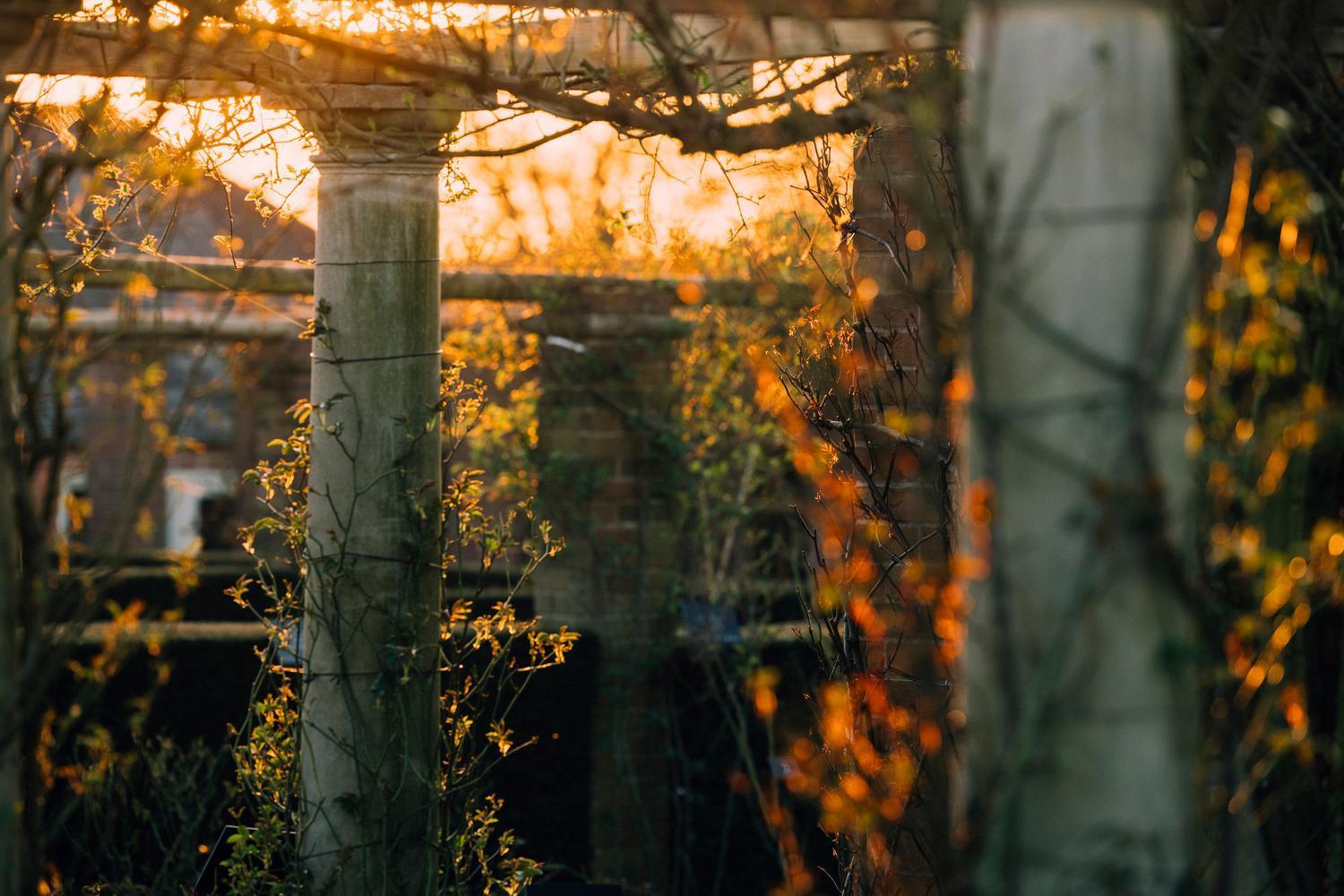 Winter Solstice: Marking the Garden’s Midwinter PauseThe winter solstice arrives quietly, the shortest day slipping in with little ceremony. In the garden, everything feels suspended. Frost holds the edges of fallen leaves, the soil settles into its long exhale and even the familiar shapes of roses seem to rest. This stillness is not an ending but a pause, a moment when the year hesitates before turning back toward the light.Read more
Winter Solstice: Marking the Garden’s Midwinter PauseThe winter solstice arrives quietly, the shortest day slipping in with little ceremony. In the garden, everything feels suspended. Frost holds the edges of fallen leaves, the soil settles into its long exhale and even the familiar shapes of roses seem to rest. This stillness is not an ending but a pause, a moment when the year hesitates before turning back toward the light.Read more -
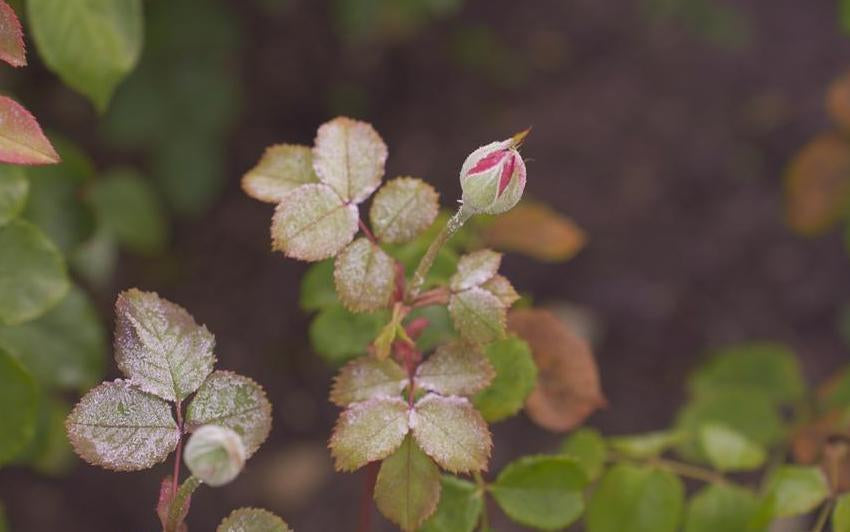 Roses at Christmas: A Winter Bloom Through HistoryRoses and Christmas may seem unlikely companions, yet the flower has held a place in midwinter traditions for centuries. At a time of year when daylight is brief and the garden lies still, the rose has often stood for continuity, memory and the promise of renewal. Its presence, whether symbolic, preserved or coaxed into late bloom, has long brought a touch of grace to the festive season.Read more
Roses at Christmas: A Winter Bloom Through HistoryRoses and Christmas may seem unlikely companions, yet the flower has held a place in midwinter traditions for centuries. At a time of year when daylight is brief and the garden lies still, the rose has often stood for continuity, memory and the promise of renewal. Its presence, whether symbolic, preserved or coaxed into late bloom, has long brought a touch of grace to the festive season.Read more
Showing 12 of 169 items

